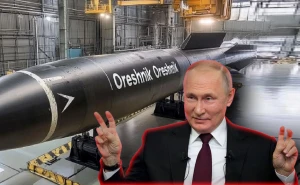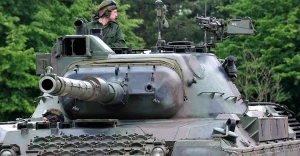
European Parliament adopts resolution to support Ukraine, condemns Orban's visit to Russia
On Wednesday, July 17, the European Parliament adopted a resolution in support of Ukraine, in which it also condemned the uncoordinated foreign policy actions of Hungarian Prime Minister Viktor Orban, in particular his trip to Russia
The European Pravda media reported this.
The resolution was supported by 495 of the 679 MEPs: it reaffirms support for "Ukraine's independence, sovereignty and territorial integrity within its internationally recognised borders."
At the same time, the document condemns the visit of Orban, whose country currently holds the presidency of the EU Council, to the Russian Federation. It is stated that this action "underlines that he did not represent the EU during this visit and considers this visit to be a blatant violation of EU treaties and common foreign policy".
The majority of MEPs condemned Budapest's abuse of its EU presidency, calling for the lifting of the blockade on funding for Ukraine from the European Peace Fund.
The EU legislature also calls on the Council of the EU to "continue and extend its sanctions policy against Russia and Belarus, while monitoring, reviewing and improving its effectiveness and impact".
The resolution also calls for continued financial and military assistance to Kyiv, support for Ukraine's accession to the EU, and the use of frozen Russian assets for its benefit.
The document also specifically condemns the Russian missile attack on the Okhmatdyt children's hospital and Russia's hybrid attacks in the European Union.
Viktor Orban's visits to Moscow and Beijing
- On July 2, Hungarian Prime Minister Orbán arrived in Kyiv to meet with Ukrainian President Volodymyr Zelenskyy. They discussed Ukraine's peace plan.
- Later, rumors spread that Orbán planned to visit Moscow after Kyiv.
- European Council President Charles Michel reminded that the EU presidency cannot interact with Russia on behalf of the bloc. Polish Prime Minister Donald Tusk also responded to Orbán’s potential trip to Moscow.
- On July 5, Orbán visited Moscow and met with Russian President Vladimir Putin, calling for a ceasefire.
- Orbán also attended the informal summit of Turkic states in Azerbaijan on July 5-6. EU High Representative Josep Borrell stated that Budapest doesn't represent EU interests in these interactions.
- On July 7, reports emerged that Orbán aims to shift the West's focus to possible Ukraine-Russia negotiations but is undermining Ukraine's support from European allies.
- On July 8, Orbán visited Beijing and met with Chinese President Xi Jinping to discuss steps to achieve peace in Ukraine. Orbán’s next stop is Washington.
- On July 11, Hungarian Prime Minister Viktor Orban met with Donald Trump to discuss the "possibility of peace" for Ukraine.
- News














































